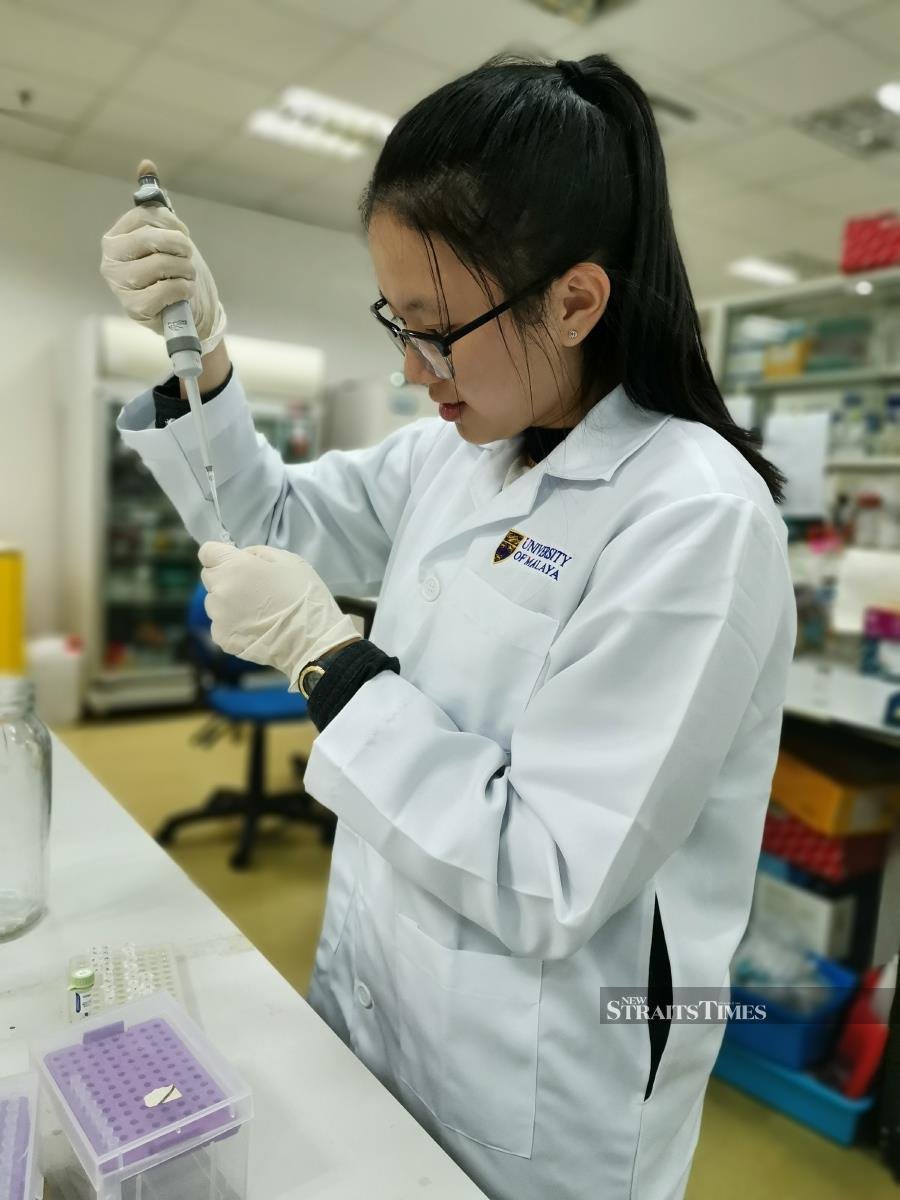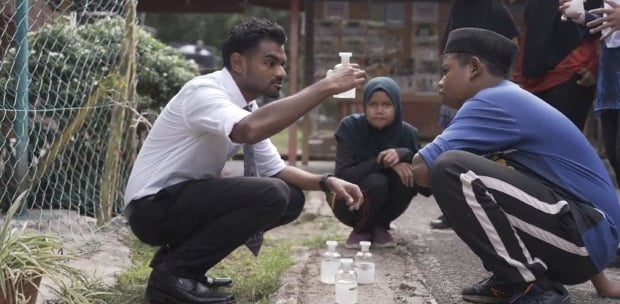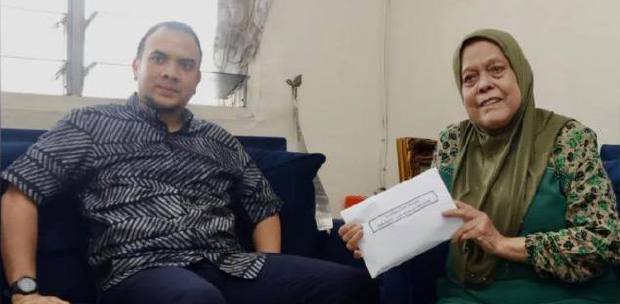Mention the word internship and what comes to mind is university or college students gaining practical experience for three to six months as an exposure to the working environment.
Internship, however, is not common among secondary school students. Bernie Tan Wai Ling, 18, a former student of Sekolah Menengah Kebangsaan Kepong Baru, decided to intern as an assistant researcher at Universiti Malaya’s Centre of Research in Biotechnology for Agriculture (Cebar) after completing her Sijil Pelajaran Malaysia last year.
She worked with a researcher experimenting on transcriptional mechanisms in response to banana plants in waterlogging stress.
“In Malaysia, especially during the monsoon season, there will be flooding and soils become saturated with water. We explored what happens to banana plants when they encounter environmentalstress due to waterlogging.
“I am aware that internships in Malaysia are mainly for undergraduates. But I wanted to challenge myself and do something out of my comfort zone.
“When I joined this internship, I wanted to make the most of this experience so that I am well-prepared when I enter a higher learning institution,” she said.
The internship programme was organised by the Immersion Experience for Malaysian Youth (IMEX) to expose students to real-world career environments in the field of bioscience.
The programme gathered 10 secondary school students from Klang Valley who were involved in three Cebar laboratories covering the areas of biochemistry, plant biotechnology and biomolecular field.
The participants, known as IMEX scholars, ventured into the research of their interest guided by Cebar mentors for three weeks. They were given transportation and meal allowances throughout the internship.
An IMEX scholar, Caelystar Valentina Ng May Zher, 16, of Kolej Yayasan Saad in Melaka, said she enjoyed the experience.
Caelyster, who aspires to be a biochemist, said: “Before this, I did not know what it was like working in the laboratory and whether bioscience is a viable career option.
“So I thought, why not take this opportunity to see if I will enjoy it?”
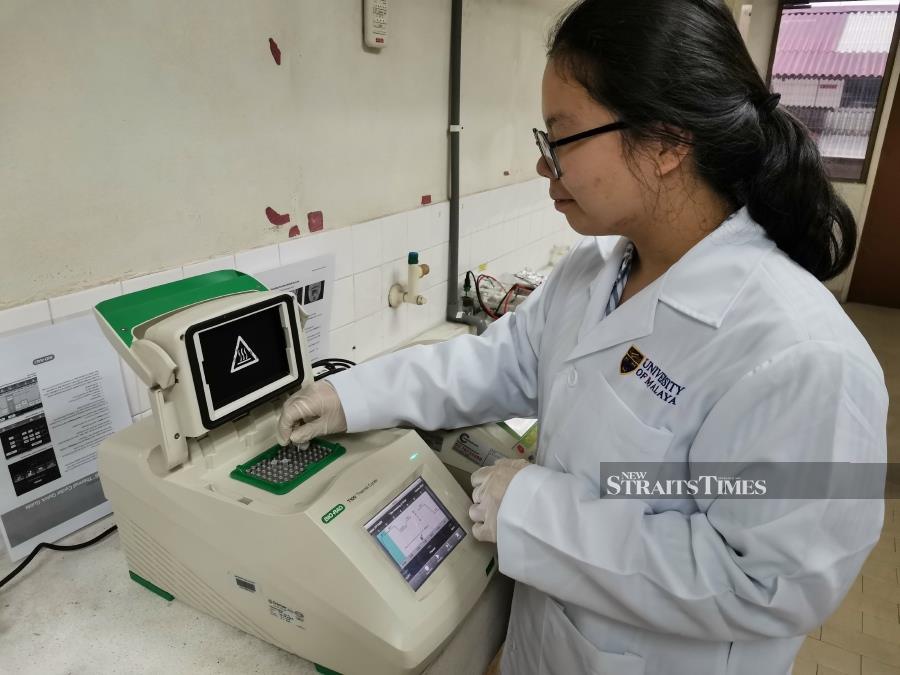
Tan pointed out that working in a laboratory could be dangerous without taking the proper precautions.
“Since I am a bit clumsy, I want to make sure that I can handle lab apparatus.
“The most significant thing that I have learnt is everything happens for a reason.
When I was carrying out my experiments, there were certain protocols I needed to follow but I never really asked why until my mentor brought it up.
“For example, I never questioned why we should never handle things with our hands. If we want to grab or transfer anything, we have to use specific lab apparatus. Now I know that it is to prevent cross contamination,” said Tan.
Ng also believes in the power of asking “why”.
“I was not into science at the beginning but in secondary school, I developed an interest in it.”
For Harenthirah Gopala Krishnan, the internship gave him the opportunity to learn specific skills such as taking accurate measurements.
“I was constantly reminded not to underestimate the protocols as the slightest mistake could produce different results,” said the Form Four student of Sekolah Menengah Kebangsaan Bukit Sentosa 2.
Harenthirah also realised that he wanted a different future career in the course of his internship.
“At first, I was inclined towards information technology but I came to know about bioinformatics which combines biology and computer science. I plan to take it up one day,” he said.
In addition to “expanding herhorizons” in bioscience, Tan said she also gained skills which will benefit her in the future.
“We were involved in an activity where we communicated with pen pals from other universities. My pen pal was a zoology graduate from Universiti Kebangsaan Malaysia and we shared stories through email.
“It gave me the opportunity to practise my email etiquette which I believe is vital, no matter what field of study or career that I will venture into later.”
Tan added that the experience shed light on those who are in the field of scientific research and academics.
“I saw their passion for the work. My mentor worked really hard. She would be in the laboratory constantly for her research and never got tired of it even on weekends.”
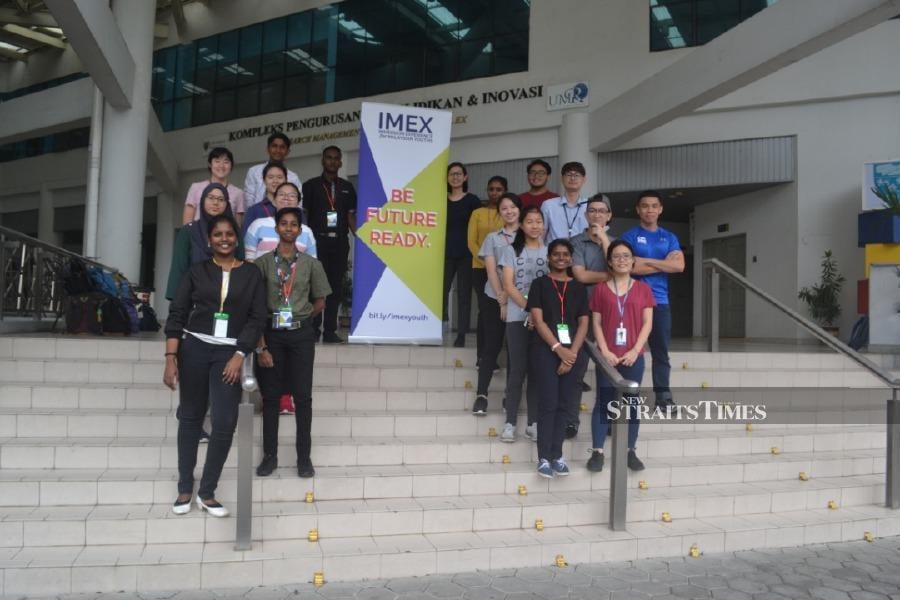
Ng shared the same sentiment. “The passion of these researchers really shows through whenever they are doing their experiments. There was so much effort that that goes into it.
“They do not conduct research just for the sake of doing it. They show genuine curiosity about the subject and how the results can contribute to the community,” she added.
IMEX seeks to create and increase exposure for secondary school school students to experience real-world career environments. It believes in nurturing Malaysian talents, striving to enable access to education, mentorship, and experience in order to empower youths.
According to IMEX co-founder Clarrise Ng, graduating students are provided with references to assist their university and scholarship applications.
“In Malaysia, a lot of internship programmes are only open to those who can afford it or those who are in better schools. IMEX aims to open up opportunities for more students.
“The impact of the programme has been encouraging, with positive feedback from students, parents, sponsors and partnering labs.
“We plan to increase the number of participating students and branch out to broader fields including technology, humanities, social sciences and the environment,” she added.


